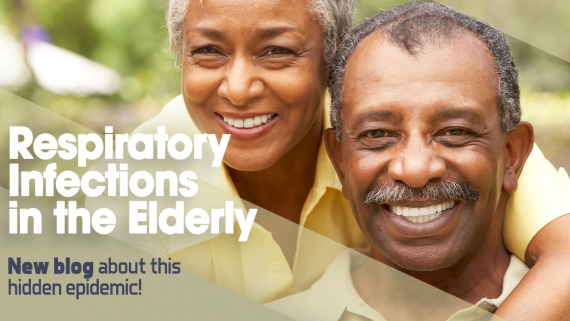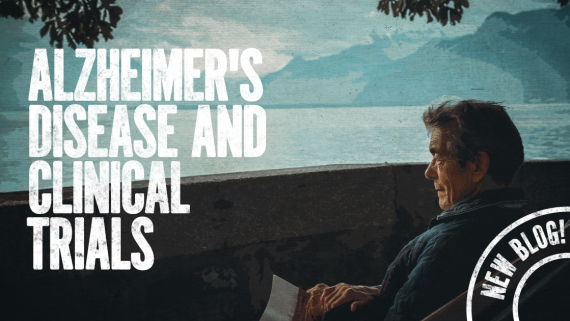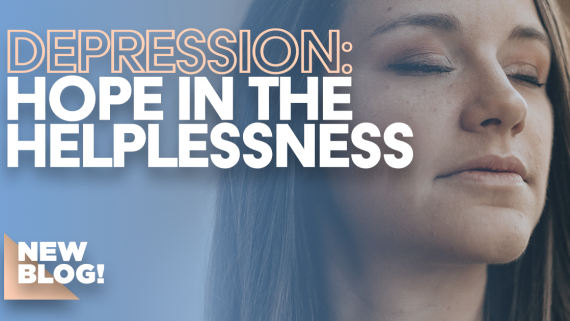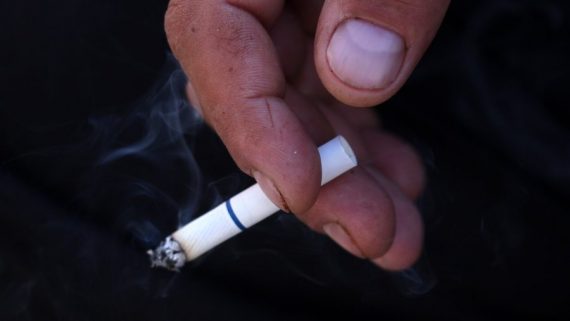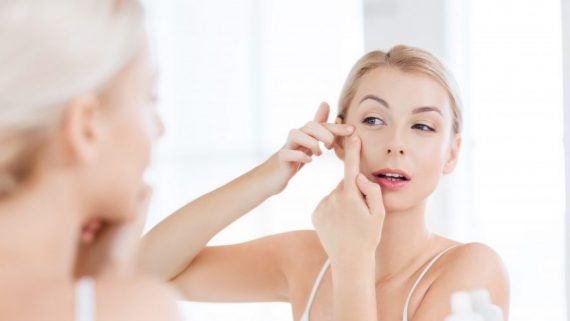Respiratory infections, like RSV and pneumonia, continue to wreak havoc on the elderly population year after year. Some call it a “hidden epidemic”. To better understand why the elderly are more vulnerable to respiratory infections, we need to look at what happens to our bodies internally as we grow older.
The Toll of Time
As we age, our immune systems become less effective, called immunosenescence. The immune response decline is different for everyone after age 65. However, everyone after that age is more susceptible to infections than when they were younger.
Risk Factors
With a less effective immune system combined with the increase and severity of a respiratory tract infection, the results can be life-threatening. Some risk factors include:
- Chronic Conditions- Heart disease, diabetes, stroke, and COPD are a few examples. Conditions that affect the ability to produce a strong cough can be especially dangerous.
- Infectious Environments- Any place where sick people gather for treatment or are living, such as hospitals and nursing homes.
Prevention
Experts agree that prevention is still the best defense against respiratory infection. The CDC has the following recommendations when it comes to reducing the chances of contracting a respiratory infection:
- Wash Your Hands Often– Use soap and water for 20 seconds. If soap is not available, use alcohol-based hand sanitizer
- Keep Up With Regular Vaccinations: Keep up to date on recommended vaccines
- Keep Hands off Your Face- Avoid touching eyes, nose, and mouth with unwashed hands
- Avoid Close Contact with Sick People- Avoid kissing, sharing drinks, or sharing eating utensils with people who have symptoms of being sick
- Cover Coughs and Sneezes- Cover mouth and nose with a tissue when you sneeze or cough. Throw tissues in the trash after
- Clean/Disinfect Surfaces- Disinfect surfaces that are frequently touched, such as doorknobs
- Stay Home When You Are Sick- Staying home (when possible) from work or other public places when you are sick prevents it spreading to others
At ActivMed Practices & Research, Inc., we are committed to not only working with patients to find current treatments that will deliver the most impactful results, but also working to develop new treatment options through clinical studies.
We are currently seeking patients for upcoming studies evaluating trial medications that may prevent RTI in those 65 and older. Qualified candidates who participate will receive study-related care at no cost. There is also compensation for travel. To learn more and see how you or someone you love may qualify for a study, please click HERE.
References:
https://www.cdc.gov/rsv/factsheet-older-adults.html
https://www.infectioncontroltoday.com/infections/older-adults-higher-risk-respiratory-infections
https://www.aging.com/what-causes-pneumonia-in-the-elderly/
Despite current treatment options, there is still no cure for Alzheimer’s. Current treatment options only temporarily slow the symptoms of dementia and keep them from worsening. Finding more effective options and even a cure comes down to testing new potential treatments via clinical trials.
What is Alzheimer’s?
Alzheimer’s Disease (AD) is the most common form of dementia and is not a normal part of aging. It causes memory loss and other cognitive problems that gradually worsen over time. Eventually, every aspect of a person’s daily life is impacted when they have AD. Early stages impact memory, while later stages come with mood changes and behavioral changes. It can even affect a person’s ability to walk, speak, and swallow.
Although the majority of those affected with AD are over 65, approximately 200,000 Americans under 65 have early-onset Alzheimer’s. On average, a person lives 4-8 years after diagnosis, and up to 20 years depending on various factors. It is the 6th leading cause of death in the U.S.
Don’t Just Hope, Help.
More participants are needed in clinical trials to help evaluate potential treatment options and to find a cure. Through the clinical trial process, more effective treatments and prevention opportunities can be found.
Beta-amyloid protein and biomarker studies that explore what causes AD have provided cutting-edge treatments and led to better medical care. However, none of these advancements are possible without volunteers. Here are some of the benefits of participating in a clinical trial:
- You can help future generations
- Participation may help you get more involved in your healthcare
- You or your loved one may have access to new treatments not available to the public
Volunteers that have a family history of AD, dementia and even those with no history are all needed. The data that is gathered from your results are used to determine whether a new medication or therapy is safe and effective.
ActivMed Practices & Research, like many other research facilities, has joined the fight to cure Alzheimer’s by conducting clinical trials. If you or someone you love is diagnosed with Alzheimer’s and are interested in hearing more about our study opportunities, click HERE.
References:
https://www.alz.org/alzheimers-dementia/what-is-alzheimers
Life is a constant roller coaster of challenges and victories. Feeling sad or hopeless is something we all experience at some point in our lives For many, these feelings persist and may require medical intervention.
The Black Hole
Depression is one of the most common mental health disorders in the U.S., affecting men, women, and children from all walks of life. Depression can deeply impact every aspect of life. Symptoms can include difficulty concentrating, anger and irritability, loss of energy, and loss of interest in the things we once loved.
Depressive episodes are when these symptoms do not go away for long periods. Below are some quick facts about those affected:
- 3 % of American Adults (18+) are affected
- Depression is more prevalent in women than men
- 9 million children (ages 3-17) have been diagnosed with depression
- Adults with depressive disorders have a 64% higher chance of developing coronary artery issues
Types of Depression
Depression affects everyone differently. How each person responds to treatment is also different, so understanding the various types of depression can be an important piece in finding the most effective treatment. Below are some common types of depression along with a general understanding of each:
- Major Depression– Recurrent depressive episodes that if left untreated, can last up to 6 months.
- Atypical Depression– Those who have it experience a temporary mood elevation from positive events such as receiving good news, hanging out with friends, etc.
- Dysthymia (Recurrent Mild Depression)– Symptoms are not as strong as major depression but can last for long periods. Those with this type of depression feel moderately depressed more days than not.
- Seasonal Affective Disorder (SAD)– Feeling of sadness, stress, and being tense beginning in fall or winter when daylight hours are reduced. This usually lasts until spring, when there is more sunlight.
Clinical Studies and Depression
Up to 80% of those treated for depression show improvement in symptoms within 4-6 weeks of beginning psychotherapy, medication, attending support groups, or a combination of these. Sadly, 2 out of every 3 people with depression do not actively seek treatment or receive proper treatment. Consulting your physician is the only way to truly be diagnosed and treated properly.
A clinical study conducted by ActivMed in our Methuen location could also benefit individuals who battle with this disorder. If you or someone you know is suffering from depression or feel like pieces are missing from your current depression treatment, these studies may be a great opportunity. Qualified candidates who participate will receive study-related care at no cost and compensation for travel. To learn more about our depression studies, please click HERE.
References:
https://www.helpguide.org/articles/depression/depression-symptoms-and-warning-signs.htm
https://www.dbsalliance.org/education/depression/statistics/
Intro
When a loved one is diagnosed with Parkinson’s Disease (PD), finding ways to provide help that is useful and impactful is not out of reach. You have resources that you can access, including recommendations straight from the Parkinson’s Foundation. If you have a loved one with Parkinson’s, you can help!
What is Parkinson’s?
PD is a neurodegenerative disorder. The disease affects the dopamine-producing neurons that are responsible for signaling the brain to move. Persons diagnosed either have low levels of the dopamine-producing neurons or have an absence of them.
Early stages of PD include loss of smell and writing that grows smaller over time as well as a minor tremor in your finger, thumb, hand, or chin while at rest.
Symptoms
The disease progression of PD differs for each person and develops slowly. There are five stages of the disease that range from zero (no symptoms) to 5 (advanced symptoms). While the disease itself is not fatal, complications from the disease can be serious. Generally common symptoms after onset can include:
- Tremor- Occurs mainly at rest and looks like the individual with PD is holding a pill between their thumb and forefinger and rolling it around continuously, known as ‘pill-rolling’
- Bradykinesia– Slowness of movement.
- Limb Rigidity-Stiffness in arms or legs.
- Gait/Balance Problems-Trouble walking or maintaining balance.
How you can Help
Now let’s take a look at some ways you can support your loved one after they have been diagnosed with Parkinson’s. Here are a few things the trusted experts recommend:
- Obtain Knowledge- Learn everything you can about Parkinson’s. For example, learning how the disease progresses can help you spot worsening of symptoms. parkinsons.org is a great resource.
- Call a Helpline- The Parkinson’s Disease Foundation helpline has specialist available to help navigate all things PD. This is a resource for those diagnosed and their caregivers. The number is 800.4PD.INFO.
- Set Up a Time to Help- Sometimes offering is not enough. Set up a date and time to help clean, meal prep, etc.
- Encourage Exercise- Research confirms exercise helps the brain use dopamine more effectively. It also helps with balance and strength. Encouraging your loved ones to stay active is important in the progression of PD.
- Listen- Whether it is a friendly ear, a shoulder to cry on, or a person to wipe the tears of frustration, listening is essential.
You Can be the Difference
As you can imagine, depression and anxiety are common in patients diagnosed with Parkinson’s. Your loved ones need your support during their journey through PD. You can be the difference in their quality of life by taking action now.
At ActivMed Practices & Research, Inc., we are committed to not only working with patients to find current treatments that will deliver the most impactful results, but also working to develop new treatment options through clinical studies.
If you or someone you love has been diagnosed with Parkinson’s Disease, ActivMed Practices & Research, Inc. currently has enrolling studies for those seeking new treatment options. Qualified candidates who participate will receive study-related care at no cost. There is also compensation for travel. To learn more and see how you or someone you love may qualify for a study, please click HERE.
References:
https://www.healthline.com/health/parkinsons-disease/how-to-support#1
https://www.parkinson.org/understanding-parkinsons/what-is-parkinsons
https://www.parkinson.org/Living-with-Parkinsons/Resources-and-Support
No two people are born completely identical. Even in the case of twins, personalities, preferences, and even minute physical differences, makes each person a unique individual. In the same way, the appearance and symptoms of skin conditions vary from person to person.
Eczema, psoriasis and prurigo nodularis (PN) are three common diagnoses that have no known cure, yet they affect the lives of millions across the globe. The symptoms of each disease are remarkably similar, and yet they each maintain distinct differences, making general treatment options difficult to prescribe. In celebration of Healthy Skin Month, here is a brief explanation of these three diseases, and what symptoms they each manifest.
Eczema
Eczema is an umbrella term used to describe a condition in which the skin becomes rough, inflamed, and causes itching and bleeding. Sometimes also referred to as Atopic Dermatitis, eczema is a hypersensitive allergic response in which the immune system attacks an unspecified stimulant inside or outside the body. Symptoms include:
- Dry skin
- Redness
- Itching/Bleeding
- Skin cracking
According to the National Eczema Association, while all types of eczema can cause redness and itching, specific types of eczema, such as Nummular eczema, can leave open, crusted or “weeping” sores. Fortunately, eczema does tend to appear in “flares”, and can subside over time.
Psoriasis
Similar to eczema, psoriasis causes itching, dry patches on the surface of the skin. The primary difference is that psoriasis is a chronic autoimmune condition that results in the production of too many skin cells. These skin cells cause thick, scaly patches to form, which can limit flexibility and cause pain. Other symptoms of psoriasis include:
- Red patches covered in thick, silvery scales
- Itching, burning, soreness
- Swollen and stiff joints
Prurigo Nodularis (PN)
Unlike eczema and psoriasis, PN is an intensely itchy skin condition that is hypothesized to be primarily caused by a thickening of nerve endings that sends a strong itching impulse to the brain. When repeatedly scratched, these nerve endings develop thick, hard nodules on the surface of the skin that can scar. Patients diagnosed with PN often find themselves scratching until pain or bleeding occurs, even while asleep. Similar to the effects of poison ivy, the more scratching that occurs, the more the nodules form and spread.
Treatment and Research
Unfortunately, there is no known cure for these conditions. Physicians at ActivMed are looking to change this reality by continually seeking new treatment options for patients diagnosed with eczema, psoriasis and PN. Those who qualify and participate in a clinical study will see a dermatologist at no cost, and receive compensation for travel. If you or someone you know has experienced chronic, itchy skin conditions, you may be eligible to participate! To learn more on how you can be involved, CLICK HERE.
August brings the arrival of Psoriasis Awareness Month. A chronic, systemic disease of the immune system, psoriasis most often appears on the skin as raised, itchy red patches. Living with psoriasis can seem like an uphill battle, but it’s important to know that if you’re struggling with psoriasis, you’re not alone.

The National Psoriasis Foundation reports that as many as 7.5 million American have psoriasis. Included in that number are people like you and me, but also people that many look up to, even idolize, like Kim Kardashian and Cyndi Lauper.
Cyndi Lauper is an icon is the music world, known for many hits that are still popular today. She revealed to PEOPLE magazine her psoriasis struggle that began back in 2010 with irritation on her scalp that she simply chalked up to bad hair dye.

Unfortunately, her scalp irritation then turned into an entire body rash complete with itchy, scaly skin over the next couple of years. Her immune system suffered as well. It took a toll physically and emotionally, and affected her ability to perform. Now, Lauper has found a treatment plan that helps her to manage her symptoms. She also avoids eating and drinking things that are associated with inflammation.
Psoriasis is the most prevalent autoimmune disease in the U.S. and not every treatment is a good fit for each person struggling to mange systems. If you or someone you love has been diagnosed with psoriasis, ActivMed is currently enrolling studies for potential new treatment options at the Portsmouth, NH and Beverly, MA sites. Qualified candidates who participate will receive study-related care at no cost and receive compensation for travel. To learn more and see if you qualify for a study at our Portsmouth, NH location, CLICK HERE. For our Beverly, MA location, CLICK HERE.
It felt like one day I was a healthy, normal woman and then…I just wasn’t. Nothing had happened to me. I wasn’t subject to infidelity, depressed, or unhappy with my husband. It just suddenly felt like one of my most basic instincts was gone. I simply had no interest in physical intimacy. If you’re a woman experiencing similar feelings, you may have Hypoactive Sexual Desire Disorder (HSDD), and you’re no stranger to this feeling.
At first, I was embarrassed and unsure of what to do. What would my friends think? I wasn’t sure I could confide in them. I decided to do some research myself. According to WebMD nearly one-third of women ages 18-59 suffer from a lost interest in sex. I also learned that The Society for Women’s Health Research estimates that as many as one in ten women suffer from HSDD, which I would later be diagnosed with.[i]
After doing some research and learning how many women experience HSDD, I felt like less of an outcast. I knew it was time to face my symptoms head on and make a trip to my doctor. I explained everything to my doctor; how I was feeling, how I didn’t want to feel, and the toll I knew this was taking on my marriage. It felt like a safe zone where I could say anything. I knew that I had been making excuse after excuse for why my husband and I weren’t being intimate, when in reality, it was because I just didn’t want to.
After I left the doctor I cried because I felt bad for my husband and how I know I had been making him feel. I cried because I had a diagnosis and wasn’t sure what we were facing. I cried for the thousands of other women feeling the way I had been, and hoped they were brave enough to face their feelings.
While HSDD is a complicated disorder and doctors are searching for ways to help. Research studies are being conducted by local physicians that may help to pave the way for potential new treatment options. ActivMed is currently seeking women for current and upcoming studies to help test these new treatments. Qualified candidates who participate will receive evaluations for HSDD and study-related care at no cost. Compensation is also available to qualified participants for travel. To learn more and see how you or someone you love may qualify for an HSDD study, click HERE.
[i] http://www.issm.info/sexual-health-qa/what-is-hsdd/
If you or a loved one struggle with COPD (Chronic Obstructive Pulmonary Disease), take comfort in the fact that you are not alone! Contrary to popular belief, COPD is more than just a smoker’s cough, it is a life-threatening disease that interferes with breathing. There are an estimated 64 million people who live with COPD.
The most common cause of COPD is tobacco smoke through tobacco use or second-hand smoke. Warning signs for COPD are frequently dismissed and, usually, people think that the reason they are short of breath is due to “just getting older.”
Common COPD Symptoms:
- shortness of breath (often the first sign)
- coughing
- wheezing
- having a tight feeling your chest
- feeling winded going up the stairs
- frequently needing to catch your breath.
People with COPD are more likely to have frequent colds, recurring bouts of the flu, or pneumonia and all of these can cause shortness of breath, coughing, and other symptoms. Shortness of breath and coughing can also be a sign of asthma which is why women with COPD are more likely than men to be misdiagnosed with asthma.
In the late 1960’s, tobacco companies heavily targeted women, resulting in an increase of women who started smoking and COPD now affects men and women almost equally because of increased tobacco use among women. Women are more likely to have lung damage from cigarette smoke than men are because women’s lungs are smaller and higher estrogen levels tend to worsen lung disease. Women are often misdiagnosed because COPD has been thought of as a man’s disease.
People are often diagnosed with COPD between age 50 and 60 when symptoms are so obvious that they can no longer be ignored, but COPD actually can begin to develop around age 40.
To find out if a patient has COPD, a doctor will have a patient breathe into a tube hooked up to a spirometer which measures how much air the patient exhales. More primary care doctors use this simple method to test anyone who is at risk for COPD, even if they don’t have symptoms.
COPD is the 5th biggest killer worldwide and is estimated to kill over 250 people worldwide. Although there is no cure for COPD, it can be found early and steps can be taken to help manage the disease. With medications, oxygen therapy, pulmonary rehabilitation and social support, many people diagnosed with COPD are able to live long lives.
How to Get Involved:
If you or someone you love has been diagnosed with COPD, a medical research study may be an option. ActivMed is currently seeking participants for several current and upcoming studies. Qualified candidates who participate will receive study-related care at no cost and receive compensation for travel. To learn more and see if you or someone you love may qualify for a study, click HERE.
Chronic obstructive pulmonary disease (COPD) is an inflammatory lung disease that makes it hard to breathe. It is a progressive disease which means it gets worse over time. Symptoms include wheezing, shortness of breath, and chronic cough. COPD is caused by long-term exposure to irritants that damage the lungs, the frontrunner being cigarette smoke. Substances like air pollution, dust, and chemical fumes can also be causes.
Historically, COPD has been considered a disease contained to white men. This is because they started smoking earlier and tended to smoke at much higher rates than other groups. Although, this stigma is changing and shocking statistics from the American Lung Association support this change. The ALA estimates that there are 7 million women diagnosed with COPD and even more living with symptoms that are undiagnosed. Since the 1980s the number of women whose lives have been lost as a result of COPD has quadrupled. So why are females becoming increasingly diagnosed?
Women are more genetically prone to developing COPD than men, and they are likely to experience more intense symptoms. A woman’s body is different than a man’s in that women have narrower airways and smaller lungs, making irritants more toxic when inhaled.
Women are now 37% more likely to develop COPD than their male counterparts. Many women began smoking in the 1970s and 1980s and COPD symptoms generally take 20-30 years to develop. Many experts believe that this influx is due to marketing done by tobacco companies.
So, what can women do? Stop smoking, today. According to the CDC, after just two hours of not smoking your heart rate and blood pressure should return to almost completely normal levels. Between one and nine months after quitting smoking, your lungs dramatically begin to repair themselves. After 10 years, your risk of lung cancer, throat cancer, and other major organs decreases by approximately half that of a traditional smoker.
If you’ve been diagnosed with COPD, you’re not out of options. If you or a loved one is currently struggling to manage symptoms associated with COPD, ActivMed is enrolling in studies for those seeking new treatment options. Qualified candidates who participate will receive study-related care at no cost and receive compensation for travel. To learn more and see how you or someone you love may qualify for a study at our Portsmouth, NH location CLICK HERE or at our Methuen, MA location by CLICKING HERE.
Our blog provides general information about health and related subjects. This content should not be interpreted as medical advice.
Acne is a skin condition that occurs when hair follicles become clogged with oil and dead skin cells. Pimples, blackheads, and bumps on the face, chest, and back are all typical of acne. Acne is most common in teenagers and young adults, but can present at any age. Dealing with acne can be incredibly frustrating and embarrassing. You’ve probably heard an overwhelming number of tips and tricks for getting clear skin. Let’s talk about which of those tips hold some truth and which are simply myths.
Fact: If you’re prone to acne breakouts, excessive touching of your face can trigger breakouts and exacerbate acne symptoms. Every time you touch your face you’re introducing whatever germs your hands have come in contact with to your skin, so remember – hands off!
Myth: Don’t wear sunscreen; it will trigger a breakout. It’s all about choosing the right sunscreen. If you’re acne prone, steer clear of chemical sunscreens and opt for physical sunscreens which work by sitting on top of the skin to deflect UV rays. Physical blockers are made of zinc oxide and titanium dioxide and are great choices for people with sensitive or reactive skin.
Fact: Popping pimples does more harm than good. We think that popping a pimple will make it go away more quickly when in fact squeezing or picking can push bacteria further into the skin and lead to scarring.
Myth: Eating chocolate gives you acne. The role of chocolate and how it affects acne remains somewhat controversial. While studies don’t show that chocolate itself worsens acne, some studies have indicated milk products may influence acne because of the hormones and bacteria present in milk.
Fact: Tanning is not the answer. While evidence exists to show that sun exposure can improve acne symptoms, UV exposure is associated with a number of other dangerous drawbacks such as accelerated skin aging and an increased risk for skin cancer.
Myth: Acne is contagious. Unlike most bacterial infections, it is not contagious and cannot be spread from person to person.
While dealing with acne can seem like an uphill battle, being familiar with some important key facts may help when it comes to managing this condition. If you or someone you love is struggling with acne, ActivMed is currently enrolling in studies for those seeking new treatment options. Qualified candidates who participate will receive study-related care at no cost and receive compensation for travel. To learn more and see how you or someone you love may qualify for a study at our Portsmouth, NH location CLICK HERE or at our Beverly, MA location by CLICKING HERE.
Our blog provides general information about health and related subjects. This content should not be interpreted as medical advice.
Everyone has experienced some type of sadness at some point in their lives. Hard times at home or work, personal loss, and relationship problems can all lead to feeling sad. It is a normal human emotion that we will continue to experience at various times throughout our lives. The good news is, the feeling of sadness will go away. Once the problem has resolved, or the hurt that we have experienced has faded, our sadness fades too.
Depression is different than sadness. Depression is a mood disorder that affects all aspects of life, making everything less enjoyable, less important, and putting a strain on the body. Depression may cause you to feel impatient and quick to anger. To be diagnosed with depression, symptoms must be present most of the day, nearly every day for at least two weeks.
Depression can interfere with working, sleeping, school, and life in general. It’s important not to give up and focus on strategies to help manage this condition.
First off, know that you’re not alone. Many other people are fighting similar battles. Some of us are experts at putting on a happy face to conceal what’s really going on behind the mask. Social media is a good example of this.
Secondly, spending time alone (as most who are depressed tend to do) isn’t the best choice. Alienating yourself from the support of friends and loved ones is the last thing you need during this time. Make sure to keep your relationships intact. Joining a gym together or attending a workout class is a great option. Not only are you spending time with a friend, but studies have shown that exercise has a positive effect on your mood.
Finally, know there’s a light at the end of the tunnel. While you’re not going to feel good all of the time, we as humans are capable of making changes. Our brains can form new, positive habits which can have long-term effects.
Millions of people around the world are experiencing, or have experienced, depression. If you or someone you love has been diagnosed with depression and feel like you are out of options, a research study may be an option. ActivMed is currently seeking participants for several current and upcoming studies. Qualified candidates who qualify and participate will receive study-related care at no cost and receive compensation for travel. To learn more and see how you or someone you love may qualify for a study, click HERE.

